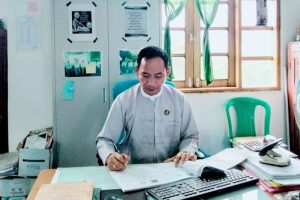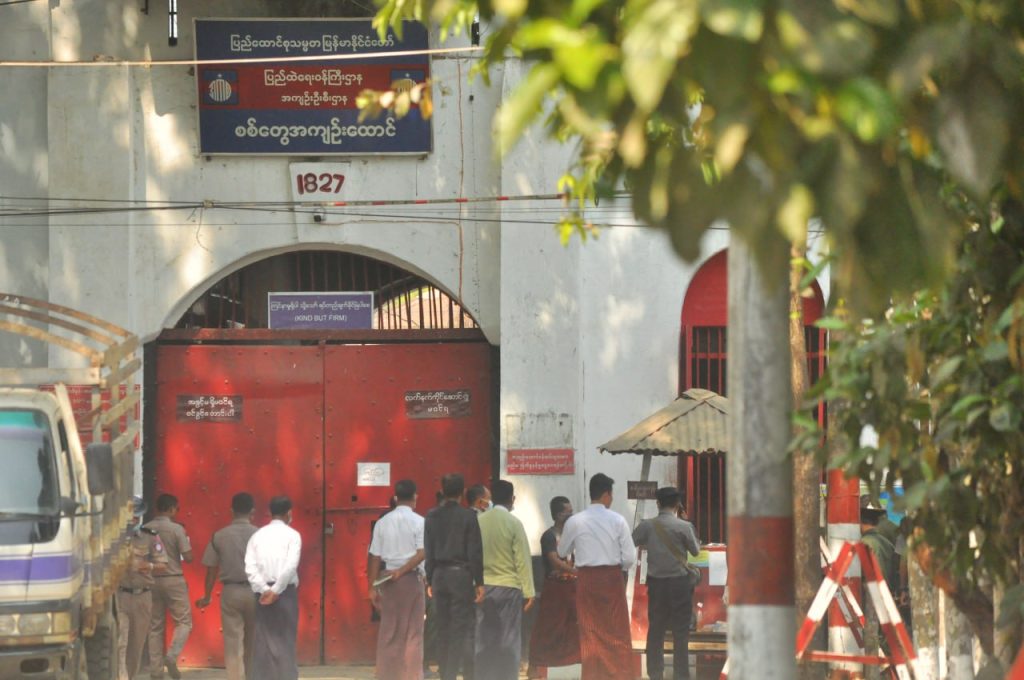
JANUARY 04, 2023
No Mercy and No Media for Political Prisoners in Rakhine
By Tun Lin
Sittwe, Rakhine state // Bordering the Bay of Bengal in western Myanmar, Rakhine state has been a major center of resistance to the junta military forces. The name “Arakan” refers to the geographic region that Rakhine covers and carries a longer history than “Rakhine” so some native people prefer to use it. A primary mode of this resistance has been through the Arakan Army (AA) ethnic armed group. The group and its affiliates have experienced intense persecution, and the junta’s recent actions risk provoking the restarting of an active conflict.
Although the junta released more than 7000 prisoners on January 4th for Independence Day across Myanmar, not a single political prisoner from Rakhine was included. The Burmese military has still not released 203 of 513 prisoners classified as being unlawfully detained, which was part of the 2020 ceasefire agreement between the ousted NLD government and the AA.
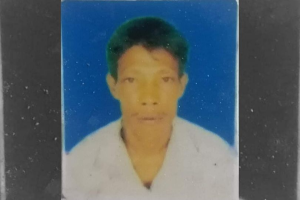
These underlying tensions are expected to be exacerbated by the national elections announced for August 2023. The junta is seeking to take steps to neuter the political power of the AA in the region. The junta desires to do this because they want minimal backlash to a poll many experts believe will be a “sham” election given the current circumstances. Some political entities from Rakhine like the Arakan Front Party (AFP) seemed more obedient to the junta’s rules regarding entering the potentially upcoming election, while others like the Arakan League for Democracy (ALD) and the AA refused to take part in the poll. This shows conflicting orientations towards the junta within the region. There is no united front on an appropriate policy toward the election and the entire situation. Following the Divide and Rule policy inherited from the British colonial time, this lack of agreement between major political factions creates further space for external forces like the junta to persecute powerful regional stakeholders such as the AA. Journalists covering the crimes of the military regime and diverse ethnic armed groups in the region have to operate within this explosive context.
Arakan Bay News (ABN) reported that in Rakhine, the junta threatened families not to talk to the media about their relatives being arrested on charges of supporting the AA. This reflects a change from the original policy that allowed journalists to talk to these families and write stories about them. Talking to these people is now classified as a violation of Section 17(1) of the Unlawful Association Law, Section 505(A) of defamation of the state, and Section 131 of the Penal Code.
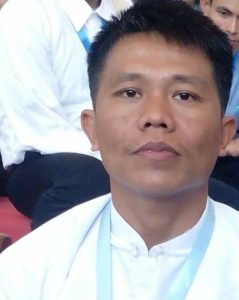
Specifically, Section 17(1) is a law that disallows the joining of organizations that the government considers as engaging in unlawful acts. AA is counted as such an organization. It comes with a penalty of three years in prison. Section 505(A) targets those viewed as criticizing the government, military, or coup past a point that is deemed acceptable by the regime. It is punishable with a maximum sentence of three years. Section 131 bans the abatement of a mutiny against the current government. All these laws are written in vague and loosely defined ways, which makes them a global threat to journalists.
A woman who wants to remain anonymous and is married to a man charged with Section 17(1) said, “We want to answer the reporter’s questions, but we are afraid of the junta’s threats that those arrested would not be released if we talk to the media about the situation. Talking to the media decreases the chance they will be released even if they are not guilty.”
Fortunately, a few local sources were able to gather information about some notable people arrested by the junta. These people include U Kyaw Zan Wai aka Rin Sot, a social influencer, U Tin Myo Zaw, a deputy Township Education Officer, U Zaw Win aka Luu Htu Zaw Win (Zaw Win for the public), and U Hla Maung Than, a rice mill machinery plant’s owner.
U Kyaw Zan Wai was first brought to trial by the junta in Mrauk U township court on September 19th, 2022. Since then, his case has been rarely discussed in the media. In early January, ABN contacted U Kyaw Zan Wai’s wife to ask about his situation. She remained silent, though she regularly attended her husband’s trial, according to witnesses
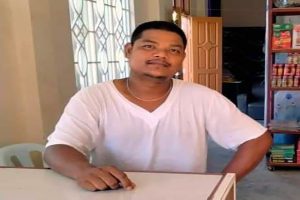
ABN was also informed that the junta similarly deterred the family of U Tin Myo Zaw from talking to journalists. U Tin Myo Zaw is a deputy Township Education Officer who was arrested and taken from the State Education Office in Sittwe, due to informing the media about his case. Until late December 2022, the local media could write news reports about U Tin Myo Zaw’s case, but after this period, the media was banned from gathering updates about the case. A man close to U Tin Myo Zaw told ABN that his friend will be in trouble if the media continues to write about his case. Also, the man claimed that the junta did not allow the family to inform the media about his case, and that U Tin Myo Zaw would probably be released on January 4th, 2023, which is Myanmar Independence Day. When the day came, no political prisoner from Rakhine was included in the freed list and U Tin Myo Zaw remained in custody.
On January 6th, he was transferred from Sittwe prison to the junta’s battalion in Minbya township on January 6th. He was regularly brought to trial in Minbya, a reliable source said. Many of those from Rakhine that were charged with Section 17(1), Section 505(A), and Section 131 had to be brought to trial more than ten times because the junta failed to show up to court each time. As the junta’s officials are the complainants, their absence slows down progress toward any legal resolution for the defendants.
